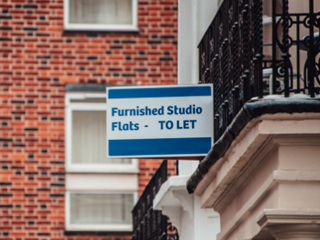
Will the improvements in buy-to-let mortgage rates be enough to convince landlords to stay in the market?
Buy-to-let mortgage rates continue to fall, improving affordability for new and existing landlords in a still-challenging environment.
The average two-year fixed rate fell to 4.88% at the start of September while the average five-year fixed rate fell to 5.21%, the lowest these figures have been since September 2022.
This will be particularly encouraging news for landlords who may be coming to the end of a two-year fixed deal, as the average two-year fixed buy-to-let mortgage rate stood at a much higher 6.64% in September 2023.
However, landlords who took out a five-year mortgage on their buy-to-let property in September 2020 may find their payments will rise when they come to remortgage. The average five-year fixed buy-to-let mortgage rate was just 3.20% five years ago, around two percentage points lower than the average rate in 2025.
In addition to falling rates, landlords now have more deals to choose from as the number of buy-to-let products rose to another record high of 4,597. Deals at 75% and 80% loan-to-value (LTV) saw particularly significant increases, with record numbers of these deals now available.
See our chart to find out the latest buy-to-let mortgage rates.
If you operate via a limited company, visit our dedicated chart on buy-to-let mortgage rates for limited companies.
Even though the buy-to-let mortgage market is showing signs of improvement, ongoing challenges could prompt existing landlords to leave the market or deter prospective landlords from investing in property altogether.
For example, changes to buy-to-let tax relief in 2020 have particularly affected landlords in higher tax brackets as many are now faced with higher tax bills on their rental profits.
Consequently, many landlords have set up buy-to-let limited companies to manage their properties in a more tax-efficient way, with more than 61,500 landlords creating limited companies in 2024, according to research from Hamptons, 23% more than in 2023.
However, even though a limited company structure could be beneficial for some landlords, this comes with its own challenges around tax, mortgages and administration.
“The cost of finance is a fundamental part of becoming a landlord, as tax changes over the years have led to a more challenging situation for investors to hit desirable profit margins,” Rachel Springall, Finance Expert at Moneyfactscompare.co.uk, explained.
“The speculation on more changes to hit private landlords in the upcoming Budget will also lead to more concerns,” she added.
Many landlords will be looking out for any announcements that may affect them in the next Budget, which Chancellor of the Exchequer, Rachel Reeves, confirmed would take place on Wednesday 26 November.
For example, Springall points out that landlords “who do not have buy-to-lets held in a limited company could get hit if National Insurance Contributions (NICs) are levied on pre-mortgage profits”.
If this change is confirmed, this could squeeze landlords’ profits even further and make some evaluate whether buy-to-let is still worth it.
Furthermore, the Renters’ Rights Bill, which is expected to come into effect next year, will introduce a range of new laws that landlords need to understand and implement.
One of the most significant changes is the abolition of Section 21 ‘no-fault’ evictions, which means landlords will no longer be able to evict tenants without reason. While this will be a positive step for tenants as it gives them greater protection, it reduces flexibility for landlords and could make the buy-to-let market less appealing.
Also included in the Bill are rules around rent increases and a review of the Decent Homes Standard which requires landlords to ensure their properties meet specific standards.
“The path for landlords remains uncertain, as many will be struggling to keep up with legislation, which can come at a financial cost and time drain to keep up with changes,” Springall commented.
“New or existing landlords would be wise to seek advice to assess how any moves in the sector will impact them,” she suggested.
Get friendly, expert advice free of charge as a visitor of MoneyfactsCompare
Mortgage Advice Bureau have 1,600 UK advisers with 200 awards between them.
Speak to an award-winning mortgage broker today.
Call 0808 149 9177 or request a callback
Mortgage Advice Bureau offers fee free mortgage advice for MoneyfactsCompare visitors that call on 0808 149 9177. If you contact Mortgage Advice Bureau outside of these channels you may incur a fee of up to 1%. Lines are open Monday to Friday 8am to 8pm and Saturday 9am to 1pm excluding bank holidays. Calls may be recorded.
Your home may be repossessed if you do not keep up repayments on your mortgage.
Information is correct as of the date of publication (shown at the top of this article). Any products featured may be withdrawn by their provider or changed at any time. Links to third parties on this page are paid for by the third party. You can find out more about the individual products by visiting their site. Moneyfactscompare.co.uk will receive a small payment if you use their services after you click through to their site. All information is subject to change without notice. Please check all terms before making any decisions. This information is intended solely to provide guidance and is not financial advice. Moneyfacts will not be liable for any loss arising from your use or reliance on this information. If you are in any doubt, Moneyfacts recommends you obtain independent financial advice.